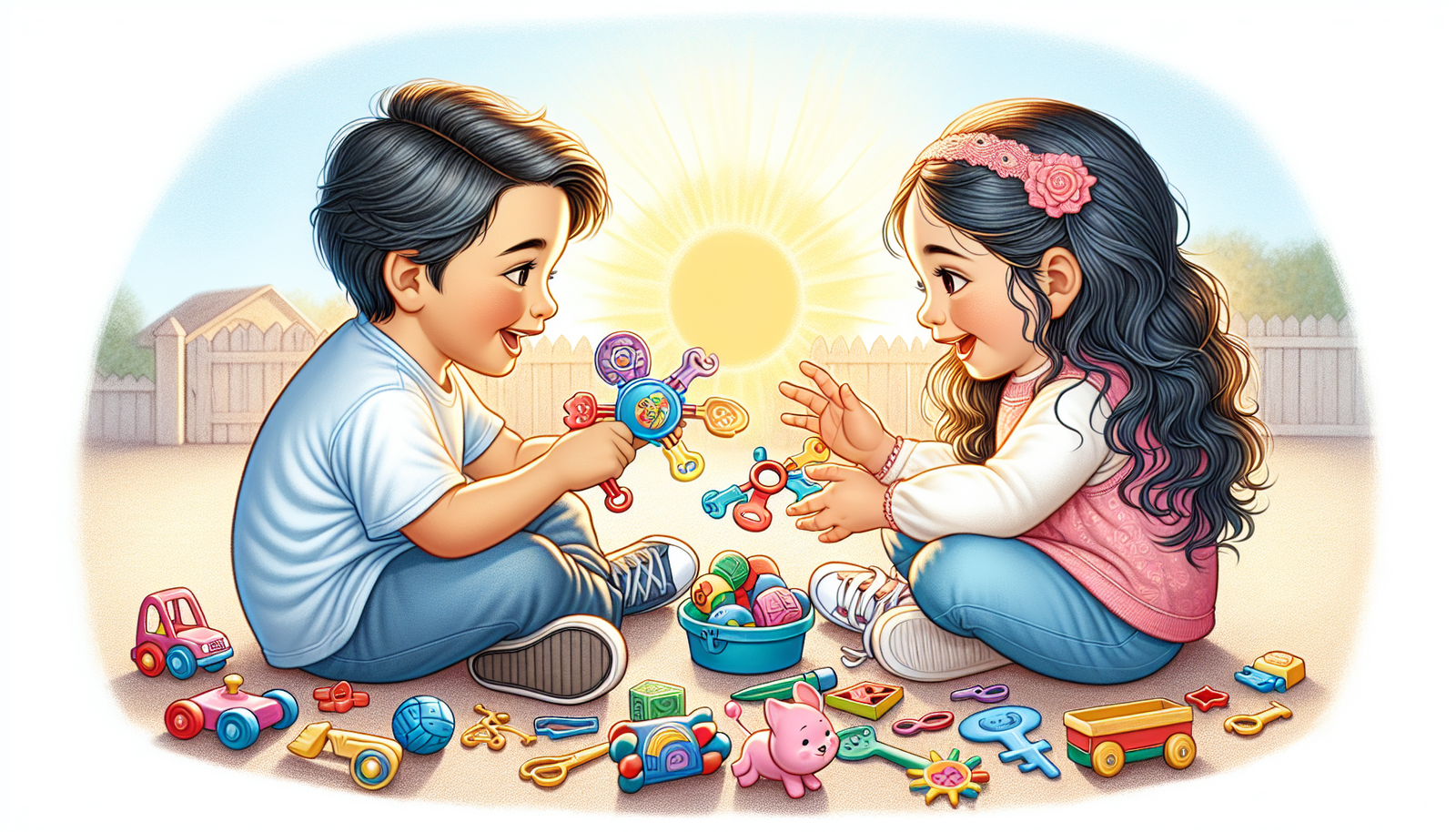This article explores the important questions that couples should consider and discuss before embarking on the journey of having a baby. It emphasizes the significance of open and honest communication between partners to ensure a strong and supportive foundation for raising a child. The article provides a list of 14 essential parenting questions that cover various aspects, including birth plans, family involvement, social media presence, caregiving responsibilities, parenting styles, and post-birth intimacy. By engaging in these discussions and reaching compromises, couples can establish a unified approach to parenthood and enhance their relationship during this transformative phase of their lives.
Read more about the latest articles
1. Who Do You Want at the Hospital and Birth?
When it comes to the labor and delivery room, it’s important to discuss and decide who you want to have by your side during this momentous occasion. You may want your partner to be there to provide support and witness the birth of your child, but what about other family members or close friends? It’s a good idea to consider who you want to have in the room and communicate your preferences with your partner.
One important consideration is how your partner’s parents fit into the equation. Does your partner expect their parents to be present during the birth? This is a conversation that should be had in advance to avoid any surprises or conflicts on the day of the birth. It’s important for both you and your partner to feel comfortable and supported during this time, so make sure to discuss your preferences and come to a mutual agreement.
Read more about the latest articles
2. What Will Your Birth Plan Be?
Creating a birth plan is essential in preparing for the arrival of your baby. It’s important to discuss and decide on the location of the birth. Are you all for a home birth, while your partner thinks a hospital is the best place to give birth? This is a decision that should be made together, taking into consideration your individual preferences and any potential medical considerations.
Pain medication and support during labor are also important factors to discuss. Each person has their own tolerance for pain and may have different preferences when it comes to pain management options. It’s crucial to have an open and honest conversation about this topic and explore the various options available. Additionally, discussing how your partner will support you during labor is important to ensure that you both have a clear understanding of each other’s roles and expectations.
Creating a birth plan together not only helps to reduce stress on the day of the birth but also allows you to make important decisions in advance. During labor, you may not be in a state to think logically, so having a plan in place can help guide you and your partner in making decisions quickly, if necessary.
3. How and When Will You Announce Your Baby’s Arrival?
The birth of your baby is an exciting and joyous occasion that you may want to share with family and friends. However, it’s important to discuss and decide on the method and timing of announcing the birth. Will you put it on social media, make a formal announcement to close relatives and friends, or take a different approach?
Timing is also an important consideration. Some parents choose to announce the birth immediately, while others prefer to wait until they have had some time to bond with their baby. Discussing your preferences and reaching a mutual agreement with your partner will ensure that you are both on the same page when it comes to announcing your baby’s arrival.
4. How Will You Use Social Media?
In today’s digital age, social media plays a significant role in many people’s lives. When it comes to your baby, it’s important to discuss and decide on the extent of sharing your baby’s photos and updates on social media. Some parents choose to share every milestone and moment, while others prefer to have a more private approach.
Consider the potential privacy and security implications of sharing your baby’s photos and personal information online. It’s also important to have a conversation with friends and family who may be eager to share images or updates of your baby. Setting boundaries and communicating your preferences regarding social media usage will help ensure that you and your partner are aligned in protecting your child’s privacy.
5. Will You Have Visitors at the Hospital?
After the birth of your baby, you may have family and friends who want to visit you at the hospital to meet the newest addition to your family. It’s important to talk about who you want to have visit and who makes the cut. Your recovery and bonding time with your baby should be a priority, so consider who brings you comfort and support during this special time.
Setting boundaries and communicating your preferences with your partner is essential when it comes to hospital visitors. Make sure that you discuss this in advance to avoid any hurt feelings or surprises. You may also want to consider the possibility of unexpected visitors and how you and your partner will handle those situations.
6. Will You Breastfeed or Use Formula?
Deciding on how you will feed your baby is a crucial discussion to have with your partner. Breastfeeding is a personal decision that can be influenced by many factors, including the desires and capabilities of the breastfeeding parent. It’s important to discuss your plans for feeding your baby and explore ways for the non-breastfeeding partner to be involved and provide support.
Having an open conversation about feeding options and expectations can help both partners understand each other’s roles and responsibilities. Together, you can explore resources and educate yourselves on the benefits and challenges of breastfeeding and formula feeding, allowing you to make an informed decision that works best for your family.
7. Will You Vaccinate Your Child?
Vaccination is a highly debated topic, and it’s important to discuss your opinions and concerns with your partner. The decision to vaccinate your child should be based on reputable resources and accurate information. Take the time to seek out reputable sources and educate yourselves on the benefits and risks of vaccinations.
Having an open and respectful conversation about vaccinations will allow you and your partner to understand each other’s perspectives and make an informed decision together. It’s important to prioritize the health and well-being of your child while considering the potential impact on public health.
8. What Will You Name Your Child?
Choosing a name for your baby is an exciting but sometimes challenging task. It’s important to discuss your preferences for naming your baby with your partner. Consider whether you have a special, unique, or traditional name in mind. You may also want to explore family names or themes when it comes to choosing a name.
Ensure that you have a conversation about naming your baby in advance to allow for ample time to explore options and reach a decision together. Remember that this decision is a personal one, and there is no right or wrong answer. The most important thing is to choose a name that you and your partner feel connected to and resonates with your family.
9. Will You Use Disposable or Cloth Diapers?
Diapering is an essential aspect of caring for your baby, and it’s important to discuss your diapering preferences with your partner. Talk about whether you want to use disposable diapers or cloth diapers and the reasons behind your choice. Consider factors such as eco-consciousness, convenience, cost, and personal preference.
In addition to discussing diapering preferences, it’s also important to discuss the division of responsibilities for diaper changing and supplies. Will you divide and conquer when it comes to changing diapers, or will someone be solely responsible for this task? Also, consider how you will manage the cleaning and purchasing of diaper supplies.
10. And What About Getting a Break?
Taking care of a baby can be physically and mentally demanding, so it’s important to discuss the need for personal breaks and self-care. Both parents should support each other in taking time for relaxation and rejuvenation. Discuss how you can each take breaks and ensure that both partners have the opportunity to recharge.
Supporting each other in taking breaks is essential for maintaining your well-being and ensuring that you can show up as the best parents for your child. Make sure to have open and honest conversations about your needs and create a plan that allows both of you to have time for self-care and personal activities.
In conclusion, before having a baby, it’s crucial to have open and honest conversations with your partner about various aspects of parenting. Discussing topics such as who will be present at the hospital, birth plans, announcing the baby’s arrival, social media usage, visitors at the hospital, feeding preferences, vaccination decisions, naming your child, diapering preferences, and the need for personal breaks and self-care will help you and your partner align on important decisions and ensure a strong foundation for your parenting journey. Remember to approach these discussions with respect and empathy, allowing space for each other’s perspectives and finding common ground as you navigate the exciting and sometimes challenging world of parenthood.













